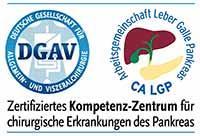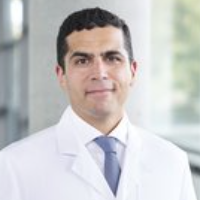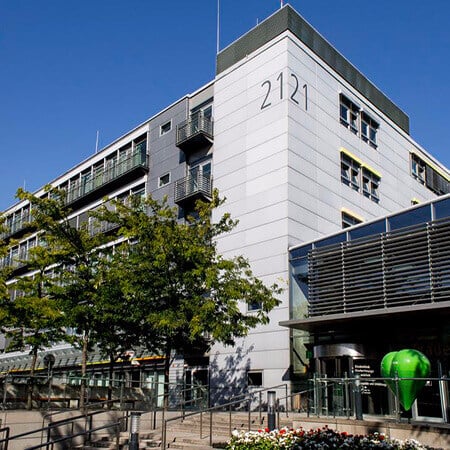Treatment of Colon Cancer with CRS and HIPEC - hyperthermic intraperitoneal chemotherapy
Treatment prices are regulated by national law of the corresponding countries, but can also include additional hospital coefficients. In order to receive the individual cost calculation, please send us the request and medical records.

Department of General, Abdominal, Transplant, Hepatopancreatobiliary, Colorectal, Endocrine, Bariatric Surgery and Hernia Surgery
The Department of General, Abdominal, Transplant, Hepatopancreatobiliary, Colorectal, Endocrine, Bariatric Surgery and Hernia Surgery provides the full range of services in the areas of its specialization and holds a leading position at the national and international levels in terms of the number of surgical interventions performed and their success. Of particular interest are operations for treating diseases of the bowel, stomach, esophagus, pancreas, liver, gallbladder, and bile ducts, and endocrine glands. The department's doctors have excellent skills in the surgical treatment of cancer, surgery for liver, kidney, pancreas, and small intestine transplants, and operations for morbid obesity. The department's operating rooms are the pride of the medical facility, since they have all the necessary technical options for performing operations with the da Vinci surgical system, image-guided interventions, and endoscopic surgical procedures, which are characterized by minimal trauma rates.







Department of General and Abdominal Surgery, Hepatopancreatobiliary Surgery, Colorectal Surgery, Endocrine Surgery, Hernia Surgery and Bariatric Surgery
The Department of General and Abdominal Surgery, Hepatopancreatobiliary Surgery, Colorectal Surgery, Endocrine Surgery, Hernia Surgery and Bariatric Surgery offers the full range of effective surgical treatments in accordance with modern medical standards. Operations of varying complexity are performed on the stomach, colon, pancreas, liver, gallbladder, bile ducts, rectum, thyroid gland, and parathyroid glands in the department's operating rooms every day. The department's primary focus is the surgical treatment of malignant gastrointestinal tumors. The medical facility is certified in this area by the German Cancer Society (DKG). The team of endocrine surgeons specializes in the treatment of diseases of the thyroid gland, parathyroid glands, and adrenal glands. Patients with morbid obesity are also successfully operated on here. In their work, the department’s specialists primarily use minimally invasive surgical techniques, which virtually eliminate trauma to healthy tissue during the intervention. The department's operating suite is equipped with an innovative da Vinci Surgical System, which allows the doctors to perform sparing and high-precision surgical interventions. The specialists of the medical facility strictly adhere to hygiene and safety standards and create the most comfortable conditions for each patient during their hospital stays.







Department of Abdominal and Colorectal Surgery, Hepatobiliary Surgery, Hernia Surgery, Bariatric Surgery, Endocrine Surgery, Thoracic and Vascular Surgery
The Department of Abdominal and Colorectal Surgery, Hepatobiliary Surgery, Hernia Surgery, Bariatric Surgery, Endocrine Surgery, Thoracic and Vascular Surgery offers the full range of services in these medical fields. It provides surgical treatment of diseases of the gastrointestinal tract, thyroid and parathyroid glands, thoracic organs, vascular system, rectum, anus and colon. In addition, the department performs bariatric interventions for the treatment of morbid obesity. A special focus is made on the treatment of gastrointestinal cancer. Minimally invasive surgical techniques are always preferred, if clinically indicated. The team of the department's surgeons has 8 progressive operating rooms equipped with everything necessary for successful treatment. The department also has the da Vinci Xi surgical system for high-precision minimally invasive robot-assisted interventions. The patient's health is in the safe hands of the best German surgeons who have gone through a rigorous selection and have vast clinical experience.






Regarding the incidence, colon cancer occupies one of the leading places among all malignant tumors. Currently, there is a steady increase in both morbidity and mortality rates from intestinal cancer.
Content
- Overview
- Symptoms
- Diagnostics
- Treatment
- Where can I undergo CRS and HIPEC treatment abroad?
- The cost of treatment abroad
- How can I undergo CRS and HIPEC treatment abroad?
CRS, cytoreductive surgery, is the removal of the colon tumor and affected lymph nodes, with resection of other abdominal and pelvic organs if necessary.
HIPEC, hyperthermic intraperitoneal chemotherapy, is the flushing of the abdomen with a heated solution of chemo drugs after CRS. HIPEC improves the effectiveness of cancer surgery and reduces the risk of recurrence.
The University Hospital of Ludwig Maximilian University of Munich, the Charite University Hospital Berlin and the University Hospital Ulm specialize in CRS and HIPEC.
The cost of the treatments ranges from 51,000 euros to 92,000 euros. On the Booking Health website you will find a list of specialized hospitals with current prices for the treatment.
For information and preliminary consultation with a doctor, leave your contacts in the Treatment Request form on the Booking Health website. A specialist will contact you the same day.
Overview
Colon cancer is the second most widespread cancer that affects mainly the elderly people.
Colon cancer is represented by borderline and malignant neoplasms, different in shape, localization, and histological structure. Typically, the disease begins with small, benign polyps that arise inside the colon. Over time, polyps can transform into malignant tumors.
Borderline colon tumors can be asymptomatic and are often detected by doctors during a general diagnostic examination.
Signs of borderline colon tumors may include diarrhea, abdominal pain, and blood in the stool. Villous tumors can lead to anemia. Large formations cause intestinal obstruction, even if they are benign.
Blood in the stool may be a sign of a tumor of the sigmoid colon. The pathology of the descending colon manifests itself by dark mucous content in the stool. In malignant formations of the proximal intestine, bleeding, often latent, manifests itself only with anemia. Also, symptoms of colon cancer may include a false urge to defecate, which is caused by spasms of the anus sphincters. At the advanced stages of cancer, constipation and intestinal obstruction may appear. There may also be a feeling of incomplete defecation. Besides, in patients with colon cancer, symptoms such as decreased appetite, weakness, and sudden weight loss are noted. As the disease progresses, the liver enlarges, and an accumulation of fluid in the abdominal cavity appears.
If tumors in patients are detected early, they can be removed during the colonoscopy and the risk of cancer progression is reduced or even excluded. Therefore, even for healthy people under the age of 50, doctors recommend regular screening tests. If colon cancer has developed, there are currently many treatments for it.
Symptoms
Patients with colon cancer often experience the following symptoms:
- Increased fatigue and weakness, irritability, decreased appetite, bad breath, sleep disturbances
- Nausea, vomiting, increased bloating, abdominal pain, a feeling of heaviness in the epigastric region
- Increased gas production, diarrhea or constipation, periodic severe abdominal pain
- Blood in the stool
- Constant sharp pains in the rectal area, lack of physiological relief after defecation
- General weakness, increased fatigue, low-grade fever, anemia, weight loss
Diagnostics
If colon cancer is suspected, patients are often referred to the following examinations.
Blood tests, including complete blood count, liver enzymes and tumor markers, i.e. CEA and CA19-9.
Fecal test. It helps to detect minor blood contents in the stool and is used as a screening test for the early diagnosis of colon cancer.
Colonoscopy. During the procedure, which is usually performed under sedation, an endoscope (a thin optic probe with a camera) is inserted through the rectum into the colon and the doctor can examine the intestinal cavity visually. If polyps are found, they are usually removed. Also, a biopsy is sometimes performed during a colonoscopy. For patients over 50, it is recommended to undergo colonoscopy every 5-10 years.
Virtual colonoscopy. This innovative examination uses a CT device to obtain images of the colon and abdomen.
CT or MRI. With these diagnostic methods, doctors obtain detailed images of the body's soft tissues. These studies are also carried out to detect metastases.
PET scan. Radioactive glucose is injected into the blood during the procedure. Fast-growing cancer cells absorb more glucose than healthy cells. Thus, a larger amount of radioactive substance accumulates in the tumor tissue, and a special camera provides detailed images of these areas. Based on this, doctors identify the localization of tumor cells in patients.
Treatment
The main treatment for patients with colon cancer is surgery. Improvement in the surgery technique and anesthetic management made it possible to reduce the number of complications and postoperative mortality. Previously, complex chemotherapy was used to treat patients with metastatic colon cancer, the effect of which, unfortunately, did not prolong the life of patients significantly. The problem is that metastases in the peritoneum don’t have active blood supply as, for example, the liver has. Because of this, the effectiveness of chemotherapy is low.
Achievements of recent years in the field of oncological practice are the techniques of surgery conducting with the opening of the abdominal cavity (laparotomy), removal of neoplasms visible (cytoreductive surgery), and subsequent rinsing of the abdominal cavity with a hot solution of chemotherapeutic drugs. The innovative technique is called hyperthermic intraperitoneal chemotherapy (HIPEC). It has already become widespread all over the world.
The goal of cytoreductive surgery is the removal of all tumor foci detected in the patients, including the primary tumor and distant metastases. When planning cytoreductive surgery in patients with multiple metastases, the surgery tactics is chosen for patients individually. Tumor board in such cases includes surgeons, radiologists, and chemotherapists. Doctors take into account various prognostic factors.
The advantage of hyperthermic intraperitoneal chemotherapy (HIPEC) is the injection of the anticancer drugs directly into the abdominal cavity at significantly higher dosages, which ensures their higher concentration in the affected tissues with minimal risk of complications. The use of high temperature enhances the therapeutic effect, as malignant tumor cells are more sensitive to hyperthermia than unaffected tissues. HIPEC can deliver to the target area 20 times higher drug dose compared to conventional chemotherapy. High temperatures enhance their action and at the same time damage tumor cells at the DNA level, disrupting the process of their recovery.
At the first stage of intraperitoneal chemotherapy HIPEC, cytoreductive surgery is performed, which includes partial removal of the tumor. Cytoreductive surgery is performed in cases where the removal of the entire tumor is impossible. After that, the patients receive an injection of a chemotherapy drugs solution that is warmed up to 42 degrees Celsius. The abdominal cavity is thoroughly washed after the cytoreductive surgery, after that the chemotherapy drug is removed, and the peritoneum is sutured.
Most often, the method of HIPEC is used in the treatment of tumors of the gastrointestinal tract, i.e. stomach cancer, pancreatic cancer, colon cancer, peritoneal mesothelioma, metastases in the abdominal cavity from other types of cancer.
In general, the result of hyperthermic intraperitoneal chemotherapy (HIPEC) depends largely on the type of the malignant oncological process and the degree of tumor cells’ spread. The more limited it is, the more effective performing the HIPEC becomes. Rehabilitation after CRS and HIPEC is also of great importance.
In terms of contraindications the most common are the presence of numerous distant metastases far from the abdominal cavity (in the lungs, bones, brain), extensive damage to the peritoneum, involvement of vital organs, and a severe deterioration of the general physical condition of patients.
Unfortunately, not every patient can receive HIPEC. In each clinical case, the eligibility of patients is discussed on an individual basis.
However, with HIPEC, doctors are saving the lives of patients in situations that were previously considered hopeless. It is particularly effective in the treatment of peritoneal carcinosis (in the spread of cancer cells to the peritoneum). At the same time, HIPEC is especially effective in ovarian cancer and in tumors originating from the appendix (pseudomyxoma peritonei). It also gives good results in peritoneal carcinomatosis against the background of colon cancer, some types of stomach cancer, and cancer of the small intestine, with peritoneal mesothelioma and primary adenocarcinoma of the peritoneum.
Besides, the HIPEC method can be used as a kind of palliative measure, pursuing its goal not to heal the patient (for example, in advanced stages of cancer), but to eliminate complications of the disease.
Where can I undergo CRS and HIPEC treatment abroad?
Health tourism is becoming more and more popular these days, as medicine abroad often ensures a much better quality of colon cancer treatment.
The following hospitals show the best success rates in colon cancer treatment with CRS and HIPEC:
- University Hospital of Ludwig Maximilian University of Munich, Germany
- Charite University Hospital Berlin, Germany
- University Hospital Ulm, Germany
- Tel Aviv Sourasky Medical Center, Israel
- University Hospital Carl Gustav Carus Dresden, Germany
You can find more information about the hospitals and general information on HIPEC on the Booking Health website.
The cost of treatment abroad
The prices in hospitals listed on the Booking Health website are relatively low. With Booking Health, you can undergo colon cancer treatment with CRS and HIPEC at an affordable price.
The cost of CRS and hyperthermic intraperitoneal chemotherapy (HIPEC) for colon cancer is between 51,920 EUR and 88,300 EUR.
You might want to consider the cost of possible additional procedures and follow-up care. Therefore, the ultimate cost of treatment may differ from the initial price.
To make sure that the overall cost of treatment is suitable for you, contact us by leaving the request on Booking Health website.
How can I undergo CRS and HIPEC treatment abroad?
It is not easy to self-organize any treatment abroad. It requires certain knowledge and expertise. Thus, it is safer, easier, and less stressful to shift some responsibility onto a medical tourism agency.
As the largest and most transparent medical tourism agency in the world, Booking Health has up-to-date information about colon cancer treatment with CRS and HIPEC in the best hospitals. Therefore, we will help you select the right clinic taking into account your wishes for treatment.
We want to help you and take on all the troubles. You can be free of unnecessary stress, while Booking Health takes care of all organizational issues regarding the treatment. Our services are aimed at undergoing treatment with cytoreductive surgery and HIPEC safely and successfully.
Medical tourism can be easy! All you need to do is to leave a request on the Booking Health website, and our manager will contact you shortly.
Authors:
This article was edited by medical experts, board-certified doctors Dr. Nadezhda Ivanisova, and Dr. Bohdan Mykhalniuk. For the treatment of the conditions referred to in the article, you must consult a doctor; the information in the article is not intended for self-medication!
Our editorial policy, which details our commitment to accuracy and transparency, is available here. Click this link to review our policies.
Sources:

